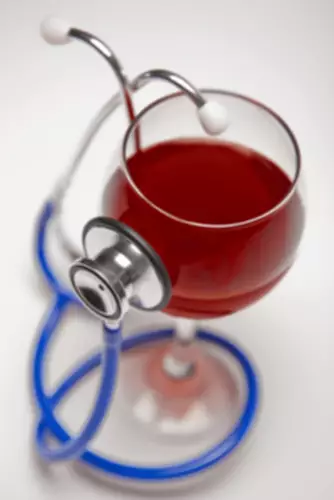Healthy Love vs Addiction: 10 Signs of Addictive Love

But when you do identify it, there are ways to reverse its effects. Like many other issues, codependency can become progressively worse without treatment and can last for a long time. When you become codependent on a loved one, you might lose a sense of your own needs and emotions.

Tips for living with a loved one who has an addiction
Instead, do your best as their friend or loved one to show that you support them and their recovery. Continue to ask them about their weekend plans or invite them to see a movie with you. Remember that they are still a person with likes, dislikes, opinions, and desires. If family members try to “help” by covering up for their drinking and making excuses for them, they are playing right into their loved one’s denial game. Dealing with the problem openly and honestly is the best approach. What might seem like a reasonable expectation in some circumstances might be totally unreasonable when it comes to someone with an addiction.

Accessible Ways to Start Therapy
Educate yourself on substance use disorders and available resources. By doing this, you are not only empowering yourself to make well-informed decisions, but you are also ready and equipped with information when your partner decides they are ready to seek help. Addiction to a person may feel like love to you, but it manifests in unhealthy ways. Let’s look at the differences between a loving relationship and an addictive one.
Loving Someone With Alcohol Use Disorder—Dos and Dont’s
It’s common to hear them say, “The only reason I drink is because you…” However, there are certain things you can do that may help relieve the pressure, and in some cases, also better help your loved one start their path to recovery. David Sack, M.D., is board certified in addiction psychiatry and addiction medicine and serves as CMO of Elements Behavioral Health and Promises Treatment Centers. By taking responsibility for someone else’s substance use, you might be forcing yourself into a constant state of worrying about something that is outside your control. By taking a step back and surrendering that responsibility, you can let go of displaced anxiety.
Other consequences may include the onset of severe emotional pain following a breakup. A 2010 review estimates that between 3% and 6% of the general adult population experiences love addiction. But because there’s no standardized way of assessing and diagnosing loving an addict these feelings, the findings are subjective. Love addiction (also known as affective dependence, affective addiction, and emotional dependence) is a condition that causes a person to develop an unhealthy and obsessive fixation with a love interest.
Ending Codependency with Someone Who is Addicted

Meanwhile, we rescue him or her from disasters, medical emergencies, accidents, or jail. We make excuses for no-shows at work and family gatherings, and patch up damaged property, relationships, and self-inflicted mishaps. We may also endure financial hardship, criminality, domestic violence, or infidelity due to the addict’s behavior. Whether love addiction should be classified as an actual mental health condition is up for debate. In fact, the “Diagnostic Manual of Mental Health Disorders” doesn’t recognize it as one.
- Our shame isn’t warranted; nonetheless, we feel responsible for the actions of the addict.
- Individuals who experienced inconsistent or unreliable caregiving as children may develop insecure attachment styles, which can manifest as anxious or avoidant behaviors in adult relationships.
- Showing compassion and support to someone dealing with substance use disorder is completely appropriate.
- Building a strong support network of friends, family, and professionals can provide the necessary foundation for navigating the challenges of recovery.
Signs of Relationship Addiction

The group can give you a place to get social support and encouragement from others going through a similar situation. Natural consequences may mean that you refuse to spend any time with the person dependent on alcohol. You just happen to love someone who is probably going to need professional treatment to get healthy again. Keep in mind that someone with alcohol dependence usually goes through a few stages before they are ready to make a change. Until they begin to contemplate quitting, any actions you take to “help” them quit will often be met with resistance. When someone with alcohol dependency promises they will never drink again but a short time later are back to drinking as much as always, it is easy to take the broken promises and lies personally.
- Love addiction (also known as affective dependence, affective addiction, and emotional dependence) is a condition that causes a person to develop an unhealthy and obsessive fixation with a love interest.
- However, a crisis is usually the time when you should do nothing.
- It can impact everyone in that person’s inner circle, including friends, family, and coworkers.
- Lara Dye, PhD, a clinical psychologist and addiction specialist in Austin, Texas, believes that love addiction belongs in the DSM-5.
- However, the longer the enabling continues, the worse the situation can become — for you and the person struggling.
- “’Love addiction’ is a process ‘addiction,’ lifestyle ‘addiction,’ or a soft ‘addiction,’” says Sherry Gaba, LCSW, a psychotherapist and love addiction specialist in Southern California.

Putting up with discomfort might sometimes feel easier than risking a possible confrontation. Though challenging, sticking to your boundaries can be important in these tough circumstances. It’s also critical to try not to lie or make excuses for their behavior. Shielding them from the consequences https://ecosoberhouse.com/ of their actions could be harmful in the long run. Clearly communicating your decision to your loved one can help them understand your boundaries. For example, if you frequently find yourself bailing the other person out, you can calmly let them know that you can no longer do this.
- The Serenity Prayer can give you a helpful gauge to see whether you are trying to control people and situations that you simply cannot control.
- Remember, the journey to healthy love begins with loving yourself first.
- Being aware of this up front can help all of you summon the patience you will need to travel the path toward recovery.
- You might tell yourself things will get better, but it’s vital to remember that the situation will not improve simply because you wish for it.
- It could make such a difference and prevent decades of unnecessary malevolence toward a person who cannot help himself.

Bir cevap yazın